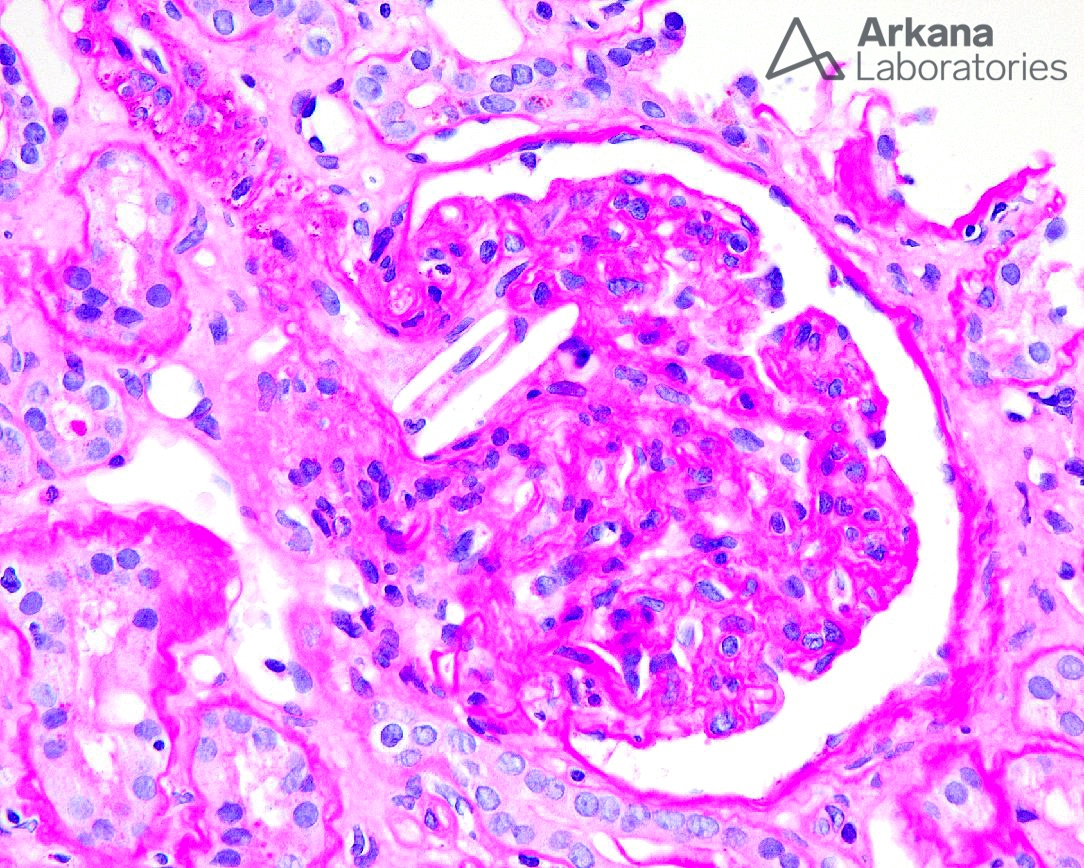The microscopic image of a PAS stain demonstrates a renal (cholesterol) atheroembolus, which is seen lodged at, and occluding, the vascular pole of a glomerulus leading to ischemic wrinkling and mild shrinkage of the tuft. Cholesterol emboli can be seen in arcuate and interlobular arteries, arterioles, and glomerular capillaries; histologically, they are characterized as convex needle shaped empty clefts within involved vessels as the crystals themselves are dissolved during routine tissue processing.
Renal atheroembolic disease can develop secondary to many causes including previous vascular surgery (i.e. abdominal aortic aneurysm resection), angiography (most common cause), and can be seen in patients receiving anticoagulation. Risk factors for developing atheroembolic disease include Caucasians, males, > 60 yrs. of age, hypertension, diabetes, history of tobacco use, and atherosclerotic vascular disease. The clinical presentation is usually subacute, progressing in a stepwise manner after an inciting event (i.e. coronary angiography) with the diagnosis usually occurring about 5 weeks post procedure; however, the disease can also manifest in both an acute form as well as in a chronic fashion. While renal prognosis is usually poor, statins have been shown to have a protective benefit to the development of end-stage renal disease. Other commonly affected organs include the skin, gastrointestinal system, and central nervous system.
Reference: Scolari F, and Ravani P. Atheroembolic renal disease. The Lancet 2010; 375: 1650-1660.

